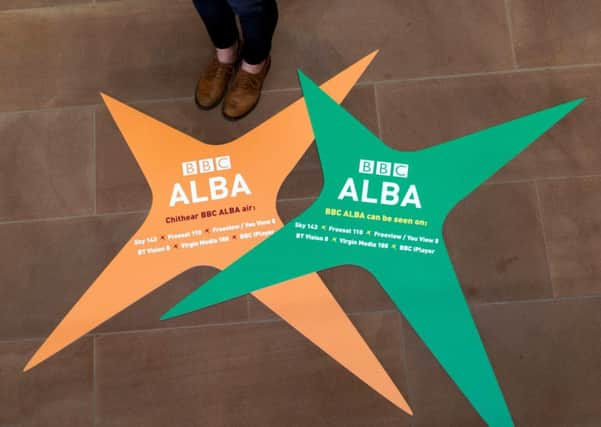Danny Alexander: Gaelic TV, radio can thrive in UK


I started my childhood on the island of Colonsay, and then spent a couple of years in South Uist surrounded by Gaelic in the playground. At Lochaber High School, I passed O-Grade Gaelic and like many of my contemporaries I now wish I had tried harder to speak it.
So I was proud last year to announce the first ever UK Government funding for MG Alba, worth £1m from 2015 to invest in high quality drama. The pilot for a new Gaelic drama is ready and filming for a five-part drama series can now begin sooner, in September. To make sure that can happen, today I’m bringing forward their funding so that it’s available immediately. On top of that I’m also very pleased to announce another £1m in addition last year’s funding.
Advertisement
Hide AdAdvertisement
Hide AdBBC Alba is a tremendous success story, and whether I’m in my Nairn, Badenoch and Strathspey constituency or in London I’m a regular viewer. My two children, brought up on the tales of Katie Morag, love the TV adaptation. Today when I visit the Katie Morag set at BBC Alba’s HQ in Stornoway they may be jealous of their father for the first time in their lives!
In Government I will always do whatever I can to support Gaelic broadcasting. It’s hugely important to the history of the Highlands and Islands and also supports well over 100 jobs across Scotland. The UK’s rich mosaic of culture and language is one of its great strengths, and Gaelic, Scotland’s oldest indigenous language, should be cherished and nurtured by those of us who value the diversity of our country. Earlier this year I visited Cornwall, where significant efforts are being made to revive Cornish. They have a lot in common with people everywhere battling to save minority languages.
While Gaelic will not survive without Gaelic broadcasting and Gaelic education, its future also depends on a healthy economy that provides employment opportunities for Gaelic-speaking communities. For too long, many Gaels have had to leave home to fulfil their ambitions.
But it need not be that way. The Western Isles have huge economic wealth. Tourists are attracted to their splendid beauty, there is a rich fishing tradition, a growing Harris Tweed industry and a new distillery on Harris. Looking to the future, the islands could become a centre for renewable energy.
The best way to capitalise on the enormous wealth of our islands is to utilise the broad shoulders of the UK economy. Developing a low-carbon industry would not be possible without the benefit of a UK-wide approach to renewable energy. If you work in tourism, fishing or weaving, as part of the UK you have access to a much larger market, offering more stability and opportunity.
We should all be immensely proud of our heritage and never be shy to celebrate Gaelic culture. But let’s also remember that Scotland and Gaelic face a brighter future within the UK.
• Danny Alexander is the Chief Secretary to the Treasury, and Liberal Democrat MP for Inverness, Nairn, Badenoch & Strathspey.